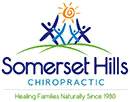HOW TO EAT HEALTHY ON A BUDGET
How to Eat Healthy On a Budget
“Eating healthy is too expensive” is one of the misconceptions making the rounds whenever the subject of nutrition and healthy eating is discussed online and in our office. Many people believe this falsehood and therefore don’t make an extra effort to check what they eat to ensure that they are not eating themselves into the grave.
However, by the time you read this article to the end, you will have discovered how possible it is for you or anyone for that matter to eat healthy without breaking the bank.
Now, when it comes to healthy eating, many people are relatively obsessed with organic foods. As long the word “organic” appears on the food label, such people believe that the product must be wholesome or nourishing.
This is a wrong impression and one of the few reasons why it is practically impossible to eat healthy on a budget. Think about it; most organic products – e.g., organic pizza, organic animal crackers, etc. – sold in the mall or grocery stores come with high price tags, some as high as $40.
But the truth is that processed organic foods will always be more expensive than their non-organic counterparts and will still hurt your overall health. You may not feel the effect of consuming processed organic food since the human body readily adapts to toxins released by such products.
However, with time, the bad stuff will build up until it culminates into a chronic health condition.
Now, if you must shop healthy foods at your local grocery store and on a budget, you need to follow some proven steps so that you don’t overspend. These steps are outlined below:
Have Full Understanding of the List of Ingredients
Only a few shoppers bother to read the entire ingredients listed on product labels before dunking them into the cart. Reading ingredient labels is very important as you will be able to determine which product is right for your health.
There are products you must stay away from, especially if they contain some or all the ingredients:
Corn syrup
Soy lecithin
Aspartame
Fructose
High fructose corn syrup
Sucralose
Canola oil
Glucose
What to eat: Organic vs. Non-organic
If you don’t have deep pockets, nutritionists recommend sticking to fish, poultry, and meat as your primary organic sources. You may also add the following to your diet:
Kale
Strawberries
Applies
Celery
Beef (especially 100% grass-fed as recommended by the United States Department of Agriculture)
Peaches
Coconut oil
Chicken (cage-free)
Grapes
Avocado
Eggs
Lettuce
Fish
Bell peppers, etc.
So, the next time you go shopping, you can go for any of the whole foods listed above.
You can also do the following to minimize the cost of eating healthy:
Make a Meal Plan and a List
Never visit your grocery without a meal plan to avoid buying random stuff that will ultimately wreak havoc on your overall health or go bad because they are still stored in your refrigerator by the end of the week.
Plan your meals for the week and then prepare a list that you will take along with you to the grocery store. That way, you will purchase only what is needed and nothing more to avoid wastage of food and money.
Use Apps to Improve Your Meal Plan
Some grocery stores have applications that allow regular shoppers to see what is on sale from one week to the next. If your local grocery has a dedicated app, use it to plan your meals.
Grocery stores also usually have a shelf or two of foods that are reaching their expiry dates. The foods on these shelves are heavily discounted. No, you have no reason to be afraid; you can still buy them as long as you are sure you will be consuming them before the week runs out. So that extra $7 in your pocket will go a long way toward securing more food for the family.
Use up What You Have before Hitting the Grocery Store Again
If you still have some stuff that you can throw around to prepare a meal, then go ahead and do so. You should only make another trip to the grocery store if it is necessary.
Make Legumes Your Source of Protein
Meat is expensive, but since protein is an essential requirement, you should consider non-animal sources such as beans, lentils, and chickpeas.
Learn to Maximize the Use of Your Freezer
Most people under-appreciate, overlook and even under-estimate their freezers. You should learn how to use this remarkable kitchen appliance by freezing everything that needs to be frozen before they go bad.
Ensure you label every jar or container before stowing them away in the freezer. Always keep a freezer catalog so that you know what you have per time.
On a final note, stay organized.
Yours in Health,
Dr. Brian Wallace
